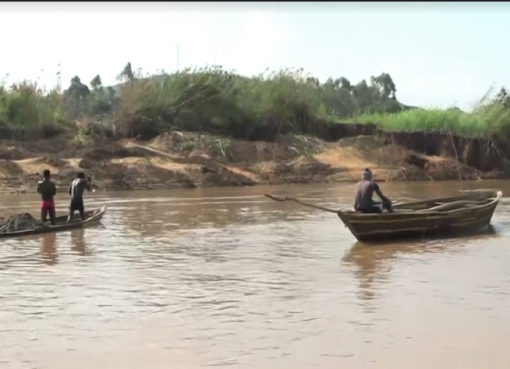School principals, students from primary and secondary schools, up to universities in Uasin Gishu county have been sensitized on the importance of conserving wetlands as a critical source of livelihoods to communities and the country’s heritage.
Speaking during the sensitization exercise conducted at the University of Eldoret, Dr. Wanyoike Wa Miti, the East Africa Research and Monitoring specialist at the International Crane Foundation (ICF) in Charge of Kenya, Uganda and Rwanda, said that they have involved schools because they felt it important for reversing the trends in loss of wetlands, which host various animal species like crane birds.
The stakeholders held the sensitization exercise as part of the build-up activities towards the world wetlands day celebrated annually on February 2nd.
Uasin Gishu is set to host the national event at Lake Narasha also known as Timboroa Dam.
The East Africa Research and Monitoring specialist expressed concern over the current trend in the decline in wetlands quality, loss of habitat and animal species that depend on them.
“Sensitization is very key and we need the young generation like the students in primary, secondary schools and even universities so that we can stop losing our wetlands because they are so critical to our lives,” he said.
Dr. Wanyoike revealed that Uasin Gishu has the largest percentage of Grey Crowned Cranes in Kenya, which is 22 percent of the national population according to the last two researches by ICF in 2019 and 2023.
Additionally, the research indicated that 95 percent of the bird species live around where people live and therefore the international event in Uasin Gishu presents a great opportunity to educate the people of their responsibility to take care of our cranes as they are part of our heritage and culture.
Dr. Wanyoike underscored that Wetlands today face many problems like encroachment, which calls for control measures on how far people should go into the wetlands.
“You find people farming, putting up fences and other structures which affect most of the wetland characteristics. There is pollution from solid waste, even setting up fires and other threats,” he noted.
On his part, Richard Kering from the National Environmental Management Authority (NEMA) indicated that Wetlands are viewed as wastelands by the majority of the people, not as a key environmental component, whose role in terms of providing livelihoods among other environmental services cannot be overemphasized.
He added that NEMA is enforcing some environmental regulations including the wetland regulations in order to conserve the wetlands.
He reiterated the need for a proper wetland management plan with enough resources invested to environmental departments both at the county and national levels to facilitate stakeholder and community engagement in the management plan.
Dr. Christopher Saina, a lecturer from the University of Eldoret (UoE), Department of Applied Environmental Social Sciences, said that they are instilling knowledge and skills to students and members of the community on the importance of wetlands, which will enable them value and conserve the wetlands in their neighbourhoods.
“We are teaching them that these are biological supermarkets, where the community gets a lot of things from, their livelihoods depend on the wetlands. We want to see that students are aware of the benefits and pass information to others on wetlands conservation, so that the young are able to understand, practice and to spread the gospel that we have a better world and livelihood for all,” added Dr. Saina.
In his remarks, Prof. Phillip Raburu, a Wetlands Specialist at the University of Eldoret, said that Wetlands are very valuable areas because there is no other single ecosystem that provides what wetland provides be it food, water, materials for building, fishing materials, mats, brooms, grass for thatching among others.
He noted that there are numerous development activities that can be done, when people are using the wetlands wisely.
He decried that we are not doing very well as a country despite the many efforts carried out by several government agencies like NEMA, KWS, CBOs together with county governments in terms of policy and regulations on the use of these wetlands.
Noting that awareness levels are not high enough which leads to in effective implementation of the wetlands conservation efforts, the Wetlands Specialist called for the need to come up with proper structures to conserve the wetlands which are mostly found outside the protected areas i.e. inside communities.
“We need to have structures for those communities, so that we have community-based wetland management programmes which entails wetland management plan and managers of the plan must be formulated and drawn from the leadership of the community, the county government and the representatives of the national government to ensure these wetlands are being cared for and being planned to sustain them,” he explained.
“If we are saying the economy is bad and we know well that these resources, which we need are found in our wetlands, but still go again and destroy them through our activities, then we are doing a disservice to our country. Sustaining them has a big premium for us as a people,” added Prof. Raburu.
By Ekuwam Sylvester


